|
Everything they say about finding the right agent for your work is true, so The thing about coming out of the query trenches, is you quickly realize, if you've made the right match, that everything your writing peers tell you is true. While you're sending off your query, balancing your heart between hopeful and blind optimism, you think people are just offering platitudes. You've heard them: 'it only takes one', 'you're better off with no agent than the wrong agent', 'it'll happen'. Every request for a partial or full sets you up to believe all of the good and every rejection knocks your feet out from under you. Those authors who have not found their agent soul mate might find it hard to believe that someone who is agented "gets it". But they do. They really, really do. Because they're at a different stage but it's very much a similar journey. Going on submission is much like querying, only you have someone at your side through the process. I'm not going to lie, that part is nicer. It's nice to have that fallback of, okay, I got a rejection but this person believed enough in me to sign me. It takes some of the sting out. Every writer who has achieved success (and that measure is different for everyone) has been where you are right now-- wherever that is. But what everyone tells you is true: it does only take one, it is better to find the right one, and it WILL happen. I've gone about learning this the long way. My querying journey has been a bit...unique. I have experienced having an agent I was not properly matched with and the disappointment of parting ways-- even when I knew it was the right move. This journey isn't an easy one: it can be hell on your self-esteem. That's why the people you surround yourself with (IRL and online) matter so much. You need people that will build you up, help you up when you fall, and keep pushing you. You need to do the same for them because whether they're unagented, agented, self publishing or on submission to big publishing houses, they will have their moments of teetering on the edge too. We're all on that ledge, repeatedly, wondering whether to keep going or give up. But only one of those options can possibly lead to success and I can't tell you how happy I am that I kept going, kept writing, kept pushing down the feeling that I might not be good enough. Because what makes you good enough is your willingness to keep going. Want some stats as proof? For the book that finally got me an agent (one I'd wanted for quite some time-- which could be another post in itself, titled: establish and maintain connections and relationships because they matter-- okay, maybe that title is too long) I actually tracked the process this time: 47 queries sent = free 4 partial requests = optimism 8 full requests = nail biting 34 Nos or no responses = grumpiness 1 agent (the RIGHT one) = PRICELESS When it finally happens? You'll be like: Yup,Tuesday is release day. Unless I mess it up somehow, which is entirely possible. This morning and last night I was instant messaging with my critique partners about writing, confidence, and audience. Basically, we decided that it shouldn't matter what others think if you've written a book you can be proud of, that told the story you wanted to, and that you're happy with. I feel that way about Forever Christmas and the people that I care about, that matter, really love the book. So, why does the thought of pressing "Save & Publish" make my stomach feel like I 've eaten too many advent chocolates? As one critique partner said, WE'VE WRITTEN BOOKS! Not everyone can say that. They can say they want to, they're going to, and they have the best idea ever but how many people sit down and actually write 40,000-80,000 words that mesh together to create a story? As it turns out, A LOT! Maybe not a lot in my circle of friends, but when you join the online writing community via social media, you realize how many books are being written, how many people are 'authors'.
So what makes an author? Surprisingly, there's nothing in the definition of the word author that says 'one who is published'. I think that when you're surrounding yourself with writers, agents and contests, you lose sight of what matters. It's not just about being published. It's not just about the praise of random strangers. It's about starting something AND finishing it. It's about feeling good that you've created something, whether one person or a million read it. The other day my daughter said something to me and I responded with a partial quote (cause our house is like that: we spout quotes and break into song at any given moment). She was worrying about someone recognizing her for something. The quote I shared with her is below and I meant it when I said it. It's not about what you're recognized for, but that feels at odds with doing something that you know begs recognition. I guess that's why we told our critique partner this morning that it has to be for ourselves. We have to make decisions based on what we want for ourselves and not for how others will see us. We need to put our best selves out there if we're going to do it, but in the end, it's not about the applause. So while I hope that many people will enjoy Forever Christmas, I need to remember, even if only my closest friends read it, that it wasn't about sales or praise. It's about sharing something that I'm proud of; something that reminds me, and maybe you, of the point of this season and this life: having people in your life that love and support you no matter what. And if all else fails, I'll just try to remember that: I WROTE A BOOK! Writing has always been something that has come easily to me. I whip off genuine, personalized report cards in a day. I can write a blog post in under ten minutes. I wrote my first novel (without edits) in four weeks. When the story is there for me, it's not difficult to get it down on paper. That's not bragging-- it's just the way I've always written. Having said that, in the past, my writing has always been for me so it hasn't mattered that there were glitches in the plot or character inconsistencies. Now that I'm actively trying to make my stories stand out above others, to make my writing catch the eye of an agent, what was once good has to be spectacular. Good is not good enough and speed doesn't count for anything.
It's difficult to separate yourself from your writing long enough to see the faults and weaknesses. I'm okay with having them and I'm okay with fixing them but the thing that is hard for me is narrowing in on where they are. This is why it's so important to utilize the feedback that anyone, particularly anyone in the writing/publishing/editing/agenting industry, has to offer. The people that I have "met" in the last year through social media and because of putting myself out there as a writer, have been incredibly supportive and kind and positive. I feel as close to some of them as I do to some of the friends that live down the road from me. I believe you can establish strong bonds and friendships via social media and email. It's new age pen pals. The difference, however, is the personal element is removed so they can, perhaps, offer that extra bit of hard criticism you need. Why? Because even though they like all your statuses on Facebook and retweet your tweets, even though you chat more frequently with them than others who live a few minutes away, they haven't seen you cry when you get a rejection letter or laugh like an idiot when you get amazing feedback. They know you but they don't KNOW you. This can be a very good thing for a writer as it allows them to be a stronger critic. There's an element of detachment that comes with online friendship that can only be changed by actually physically meeting. And I hope that one day I get to meet some of the amazing people that have befriended me. In fact, I already have met some of them and it's a pretty awesome feeling when they're just as cool as you thought they'd be. However, until I meet the others, I can let that buffer level of detachment work in my favor. They can be just a little harsher than my best friend who has to put up with me being moody when she tells me what I know is the truth. If they don't want to deal with my irritation over pointing out something that needs fixing, they can move away from the computer. Trust me, my best friend can't. I will show up at her house cause I'm fifty shades of needy and clingy like that. So the point is, I'm going to spend some time really letting the feedback wash over me, knowing that these people who are offering me pointers and suggestions, for some reason, want me to succeed. I've said it before but it bears repeating: writers are the most supportive, encouraging group of competitors you could align yourself with. I guess it's because there can never be too many books. Or maybe it's because the same story can be told a million different and compelling ways. Whatever the reason, the writer's I've met want every bit as badly as I do to succeed. But they fall over themselves with praise, feedback, encouragement, and their valuable time to make sure I'm right there with them. For the next little bit, I will be drawing on them to help me make my work the strongest it can be. I will also be checking out as many articles, blogs, posts,and websites as I can. Here's what I'm starting with this week: http://warriorwriters.wordpress.com/2013/04/29/ways-to-create-multi-dimensional-characters-tip-1/ http://www.dummies.com/how-to/content/creating-emotional-conflict-and-tension-in-a-roman.html Any good sites you'd recommend for character development or building conflict? Share. Keep Calm and anything doesn't really suit my nature. I mean it when I reply to people who tell me, inanely, to 'relax' that "this is me relaxed". My brain works on overdrive all the time. A situation that would bring a few questions to mind for most people, generates hundreds of questions in my head. So, as you might guess, waiting patiently is not my thing. I think maybe, in some alternate universe where I try to see the good side, having to wait for answers about my writing is a good thing for me. I'm slowly learning that everything does not need to happen RIGHT NOW. My friend sent me a beautiful quote that, oddly enough, did making me relax a little. I always feel like I just have this short window of opportunity to start and complete something but this a self-imposed window. I box myself in by creating deadlines or telling myself that I have something to prove. This works against you in writing. There is no time limit here and this needs to be remembered. Also, it's true when you're told that this is a subjective business. So far, for my current query, I've had a few "it's not right for me" but "perhaps another agent", rejection letters. It is hard to have someone turn down something that matters to you. In fact, I sent my best friend and husband a text earlier this week that said something along the lines of: I don't want to do this anymore. I can't keep sending my work out there. I, with my inability to WAIT for anything, got a little down when I entered a very cool pitch contest on Brenda Drake's website and had no immediate responses. I felt that if I got some requests, I should keep going, but if I didn't, I should take a break. Here's the important thing though: I can't take a break from writing. The words and characters won't stop forming in my head so, in the end, whether I get published or not, if my work is requested or not, it's part of who I am. Keep calm? I have to write to do that. I have a tendency to obsess and need immediate results. This is not a good combo in the writing world. Fortunately, I have a strong support system that is used to me, ignores my defeatest texts, tells me to take a breath and doesn't mock me, too much, when I send a follow up text about an hour later that reads: Disregard last text. Just got a request. Still bring pop, please. Actually, I got three requests from the "Pitch Party" and I am thrilled and excited and feel like I'm starting at the bottom of the roller coaster, again. However, I think it was a good little learning curve for me because it reinforced what I've already said: you have to write for you. It's where your best writing comes from. You have to be willing to listen and accept feedback and critiques AND rejection. If you decide to pursue the path to being published, you have to be willing to move forward, fight for it, get your writing out there and understand that it is a subjective business. It's like anything in life, I suppose, you have to really want it and the harder it is to get, the more you'll appreciate it when the good moments come.
 If it was...I'd be out! If you've been reading my posts, you know that in the last seven months, I have gone from writing just for fun, to being agented, to being on submission, to being un-agented. If you haven't been reading, then you are now joining me at the "un-agented" phase.
Now that I've been exposed to people liking my work and wanting to make it into an actual, hold-in-your-hands, turn-real-pages book, I feel this overwhelming desire for it to be so. I can't really say that I'm back to square one because I'm not sure that I started there. I think I started sort of in the middle, spun around several times, and landed, here. The benefit, for me, of having approached the writing industry in this way is that I was safely tucked away in my agented corner. I am a self-doubter to the maximum degree and so I think that if I had just started, like so many do, by sending my work out there, without knowing how to make it stronger and getting rejection after rejection, I would have buried myself away from the writing world. Instead, I felt free to explore and connect and learn. All of those things have been invaluable. I feel like I am far more prepared to query than I would have been without the last seven months of making those connections and learning about the industry. Of course, none of this makes me an expert, which is proved by the three rejection emails I've received in the last week. It has, however, made it easier to get back up. Now that I've spent time connecting with other writers, I realize that querying is, thankfully, not like sports. If one player gets ahead, it doesn't mean the other player loses. There's no keeping score, you can always improve your 'game', and if you get older, it doesn't affect your performance negatively. Most importantly, when you feel like you're on a "losing streak", it's not always as bad as you think. When I mentioned to my friend and reader, Lauren (visit her site for great information and help on writing and editing) that I'd received 3 rejections, she said "that's not so bad". Well, it's not so good either. However, the big thing for me is that by having Carly sign me, even though it didn't work out the way I hoped, it was like I was front-end loaded with confidence. It's waning a bit but not enough to stop. The desire to keep going is fueled by the kindness that accompanies the rejection emails. They have encouraged me to keep writing, send to other agents, and apologized for not being interested at this time. Yes, I know it's a form letter but it could also say: "No", "No thanks", "Not for us". It speaks to the kind of people that writers, agents, publishers, editors, and readers are. When you fall in love with a book, it's already been loved by others, numerous times (I'm sorry to say you weren't its first). To make it through the long journey that is the book industry, the people fighting for you have to believe in you and your words one hundred percent. Or more. I appreciate that someone has taken the time to create a form letter that says, "This isn't for me but it's a subjective business. Keep trying." In sports, when you have a bad game, you watch playbacks to see where you could improve. In writing, you count on people to be honest with you about what works in your writing and what doesn't. What I have learned, for sure, is that if you are at the point where you want to share your writing, you want to be certain that it stands out. I am learning, slowly, that to stand out, to stay in the game, takes patience, revision, more patience, and an understanding that three outs don't necessarily mean it's over. I should note that I do not play any sports at all, unless you count online shopping or being able to stand on a paddle board for longer than one minute without falling. Therefore, I think this adds strength to my sports metaphor. Or undermines it. I'm not sure which. The End...maybe That call? The one that makes you feel like you haven't been wasting your time and fooling yourself? It came in an email first, for me anyway. In the email, Carly said she really liked The Princess and the Please and thought it had great commercial potential. She asked what I wanted in an agent and could she phone me? Um, YES! So she did.
You think it went like this: once we went through edits and revisions, Carly sends off the manuscript, editors and publishers loved it, and Carly phones to tell me I have to decide which book deal I want to take. That's a lovely ending. But it's not the one that happened. We did go through revisions and Carly did send it out to editors and publishers. They did not love it as we did. They did not offer any such deal but they did offer us best wishes. While this was happening and I was at home wondering, every single day, if today would be the day, I began writing more and more. I sent some of that writing to my agent who responded with feedback. Still, I waited. I wrote. Waited, wrote, waited, wrote. What's the worst thing that can happen? This book isn't going to work so you and your agent get the next project ready to go and try again, right? Maybe. In a lot of cases, I'm sure it does. For me, I got another email asking about a good time to phone. I thought (hoped, prayed, and wished) that it would be to talk about my contemporary romance novel that I had sent her a couple of months prior. It wasn't. For me, this part of the story ended like this: Carly phoned to say that while I was professional to work with and had done nothing wrong, Princess wasn't getting picked up and she wasn't in love with any of the writing I had sent her in the mean time. She felt that she was no longer the best agent to represent me and this would be the end of our journey together. Questions and thoughts that jump around like mini madmen in your mind: "It's me, isn't it?", "Will I ever get another agent?", "Is this a sign?", "Did I make this happen?", "Do I actually have talent or was this a fluke?" All of those questions, and more, looped through my brain and still do. Really though, it's just a matter of it no longer being the best fit. No hard feelings, unpleasant words, or mixed messages. I suppose it could have gone down differently but in the end, it's the most civilized "break-up" I've ever had and we didn't even have to give each other back our stuff. She didn't unfriend me on Goodreads or block me on Twitter. In fact, she said she'd give me some advice on the last thing I sent her and if I had questions, I knew she was always around on Twitter. Was it easy? No. Was I sad? Yes. Can I do anything about it? Yes and No. I can't make her take me back but we parted ways gracefully so I can only hope that it means new things will come. I've spoken of the writing community many times in the past year and once again, they are this amazing group of people that don't hate you if you succeed and don't pretend not to know you if you don't. I emailed Tanya, spoke to Carolyn (storytime), and reached out to new friends made on Twitter. They offered regret on my behalf, words of wisdom, and positive encouragement. How much more can you ask for than that? It's not the ending I wanted or any author wants. I doubt it's the phone call or ending Carly wanted either. So what now? Well, I still have the Children's Festival next week, which I thought I should cancel because I was feeling like a 'fraud'. Then I decided no, I still have things to offer, things that made Carly notice my work in the first place. I'll do that. I'll keep getting to know the writing community. I'll keep writing and reading. I'll keep hoping it wasn't a fluke. Five things that wouldn't have happened if I had not gone to the writer's conference that weekend:
When I was little I would get out some paper and a pen or pencil and call myself a writer. What more could anyone need if they wanted to write stories? When my daughters want to write, they ask if I can get off the laptop, if they can use the iPad, or go onto the desk top computer. Lots of times, I tell them that they have to use the old fashion method of paper and ink. I think there's power in this for them. As a writer, there is still something that moves me about writing the words that fumble around in my brain down on a piece of paper and reading over it, realizing that it's become something more than jumbled words. We can backspace and delete on our laptops but I believe pen to paper will always have value. That can be another post.
When I was in high school I got a very nice Smith Corona typewriter. When something really mattered, I'd type up a final draft on that. In University, I purchased my own computer and parted ways with my pen and paper unless necessary. As I've waded into the waters of "professional" writing (sharing with an agent, getting an agent, being on submission), I've come to realize that there are many more tools necessary for today's aspiring authors. It's more than just the medium we use to get our words down; much more. In teaching (I teach elementary), we need to be very aware of (and hopefully utilizing) 'best practices'. This means that we are up to date on current research and information on how to facilitate student success. It is very similar in writing. It is not just paper, pen, a list of agencies to query, and some stamps anymore. What does today's writer need in their toolkit?
What else? What's important in your writing toolkit? What makes you stronger or more confident as a writer? Some thoughts on where to turn when you need answers about your writing journey. When I'm reading articles and blogs on writing, I'm often reminded of something my mom suggested when I had my oldest daughter. She told me to choose someone I admire and respect to look to for advice. If I had someone I could turn to, then I could tune out all of the unwanted advice and suggestions that inevitably come to new parents. Ten years and a second daughter later, I realize that this advice applies to writing as well. As a new writer, it is easy to be inundated with tips, advice, and suggestions. There are thousands of websites, blogs, newsletters, and articles about succeeding in writing. It takes a long time to sift through the advice and suggestions. It takes patience to decide what routes are right for you and your manuscript. It's difficult to trust in your own judgement when others seem to know so much. To navigate successfully through waters you've never swam in before is a challenge that most new authors don't anticipate. I didn't. It amazed me how much information is available. I feel lucky to have had an 'edge' so to speak. Having been lucky enough to be signed by an agent, I began to follow people on Twitter that she followed. By doing so, I found a variety of websites, blogs, agents, and authors that share insightful and valuable information. I don't have to wade through all of it, wondering which one has the best or most useful advice. Regardless of where you are in your writing journey, I thought it might be useful to share some of my favourite 'industry' sites. These are websites that I turn to time and again for valuable information, writing tips, industry knowledge, and an overall good and candid read. Just like with parenting advice, you can't listen to everyone. You have to choose a trusted advisor (or a few) and rely on yourself. You have to know what you're comfortable with, what you want for yourself and your manuscript, and push yourself toward advice-givers that are in sync with these things. For me, the following websites answer the questions that randomly pop up but they also make me think about things I wouldn't have otherwise. The combination of trusting sound advice and trusting myself has, hopefully, made me a better writer. My favourite sites http://carlywatters.com
This is the site of my agent. Her blog was named one 101 best websites for writers. She gives honest, straightforward information that is both realistic and encouraging. http://rachellegardner.com I love reading posts by Rachelle. Her blogs always answer questions to things that I have been thinking about. Insightful, funny, and helpful. I cannot believe how vast and supportive the writing community on Twitter is. Watch who people you trust are following, take a look at the suggestions Twitter makes for 'other people similar to this'. I have been lucky enough to have fun, meaningful, and helpful communications with writers all around the world that, without Twitter, I would not be connected to. It is amazing to feel connected to others on a similar journey. http://writersdigest.com Whether you're looking for webinars, courses, writing opportunities, or industry information, you will find it at Writer's Digest. I love reading the information on this website. It answers questions that new writers really have without being vague. http://www.dahliaadler.com Dahlia is a writer, like us, who is honest and genuine on her website. It's easy to navigate and the 'Daily Dahlia' is broken down into excellent categories, such as tips for agented authors and tips for unagented authors. Her writing is funny and real. I've read, time and again, that writing is a solitary journey. What is always stressed however, and turns out to be quite true, is that we are not alone. Reach out, find others who can and will support each stage of your writing journey. Connecting with other writers, agents, editors, and people in the publishing industry is an invaluable way to realize that everyone starts somewhere. There is something very powerful about connecting with people that share your passion, who 'get' what you do or want to do. If nothing else, connecting with others can show you that, regardless of the stage you're at in your writing, others have come before you and made their way through. Do you have a list of 'go-to' websites that provide awesome information? While playing the game of Life with my oldest daughter yesterday, she said the simplest and sweetest of things and it reminded me that, sometimes, you just have to let it go, let things work themselves out, and believe. She was beating me mercilessly, as usual. I had four children, lost my job twice, got sued, and went on a $35,000 vacation. She, in turn, had bought a mansion, found treasure, and got a book deal. She wasn't gloating though, so she clearly takes after me more than her dad. When she landed on the "You signed a book deal, collect $200,000", I commented, in passing, "I wish that would happen to me." While collecting her money, she says, "It will. But for real, not just in a game. You'll see." Just like that. Now, I do hope that one day my book, which is on sub, gets picked up and has success. It's a fun story. However, I in no way think that I'll become rich in any way. From what I've learned about the book/publishing industry, you write for the same reason you teach: because you love it. Which is fine; more than fine. What struck me is the simplicity of her statement and her conviction. When we're young, we believe in fairy tales, happily ever after, and ourselves. Sometimes, we lose that along the way. As the truth about fairy tales and reality, we let go of that blind faith in things we cannot see. I don't consider myself a jaded person. I believe in people, that good things happen and that good triumphs in the end. But I can't tell you how good it made me feel to know my daughter believes in me, even when I forget to. That simple show of faith reminded me that, in the real world, believing in something (like yourself) can't be measured by time, accolades, or even your definition of success. Believing in yourself, and in turn, in your writing, needs to be a constant. It's what keeps you moving forward. I read an excellent quote the other day: “Sometimes your only available transportation is a leap of faith.”– Margaret Shepard This could not be more true. We need people in our lives that will remind us of this when we forget. I feel grateful to the people I have in my life that do this for me.
I stopped watching American Idol because I grew tired of it and fell in love with The Voice. While I watched, however, I always wondered about the contestants that gave new meaning to the phrase 'tone deaf'. I'm sure some of it was staged but some of those people that absolutely should not have been trying out, really thought they might get through. Every time one of those contestants tried out, I wondered the same thing: "Doesn't anyone love them? Respect them? Don't they have one, just one, person in their lives that will tell them the truth?" The truth, for them, being that they can't sing; at all. Sure, it made for good T.V. but those people stood for hours in line ups, hopefully waiting for their chance to share their 'gift'. Even though it would not be easy to tell your friend, your co-worker, or family member that they should never sing, certaintly not on live television, it would help them more in the long run.
As the person who can't sing (this may turn out to be metaphorical), it's hard to hear the truth. I'm actually not sure if it's harder to hear it from the people that love or care for you or from complete strangers. Logically, you know that the ones who care for you have your best interests at heart. These are the same people that, if you can sing, will support and applaud you; the same people that will pick you up when you fall. If you can trust those people to help you up when you're down, then it's important to trust them when they're telling you what you don't want to hear. Easier said than done, I know. How do I know? Because I'm lucky enough to have people in my life that would stop me from singing on live television. Or, in my case, people that will say that my writing needs work, could be stronger, or is missing something crucial. As artists, and I use this word to encompass whatever your craft may be, it's hard to hear that something we feel we've put our heart into is not received with adoration. However, we are attached to what we've produced in a way that others aren't and that is, ultimately, to our great benefit. Again, if you trust a small group of people to be there during the good times, you need to trust them during the hard times or 'in progress' times. These are the people that want you to go in front of the live audience and succeed. Sometimes, to do that, you have step back and strongly consider what they're trying to tell you. This is how I approach my writing (and rewriting), even though it's difficult to know it's not coming out perfectly the first time. I want to be good at what I do and it's hard, for kids and adults alike, to realize that even when you are good at something, it takes a lot of effort to be more than good; to be great. Since I've started spending large chunks of my time writing, I have been reading about writing, editing, blogging, and publishing. It is amazing to me that I can have a degree in English, have been teaching for ten years, spend my days helping kids write, and have been writing personally for years, but still have so much to learn. This is why, I listen to those that know better or who aren't as close to the piece of writing as I am. I feel profoundly grateful to have the people in my life that push me to be better. If you listen with an open mind, the words you hear will make you stronger, and in turn, make your work stronger. When I was having my first child, my mom told me to pick one person that I trust, really trust, and take their advice. She told me I'd be getting lots of advice from 'experts' and that can be very overwhelming. It was good advice, because whether someone had a child or not, they had ideas on what made for good parenting. Choosing to do this for my writing was a good move as well.I can't listen to every good or bad piece of feedback I get because I think I'd get lost within it. So I chose people that I trust: my agent, my best friend, and a close work friend to really be honest with me. I trust them to ask me the hard questions, make me rethink my own thoughts, and push my writing to a new level. I take their suggestions to heart in hopes that it will make me a better writer because I know that's what they want for me. It's not always easy to hear that they don't love a certain twist that I thought was going to capture attention or that maybe they don't connect with the character the way I do, but by trusting them, I can re-evaluate and, in most cases, see their point of view. So far, trusting in them has made me much prouder are more certain of my final products. Part of this willingness to accept feedback and critiques might stem from being a teacher. As a teacher, I constantly ask myself, what can I do better, how can I connect more, how can I make it more meaningful? These are the same questions I should be asking myself as a writer. Just like with parenting advice and my writing, I have a select group of colleagues that I trust to tell me 'hey, that's a really good idea' and know they mean it. If I trust them enough for that, however, I feel like I owe it to myself to trust them enough when they say, 'hey, if you try 'this', it might work out better'. Truth and trust are important words. As a teacher, I want parents to trust that I have their child's best interest at heart. As a mom, I want my kids to trust that maybe, just maybe, I could be right about something. As a friend, I want my other friends to trust that I wouldn't say something looked great on them if it didn't and watch them buy it while biting my tongue. We have to learn to trust the people that we surround ourselves with and accept that sometimes they might have to give us some hard truths. In the end, these truths can make us stronger, better, and sometimes, even braver. If we know that they will tell us both the good and the bad, then we can rest easy, knowing they wouldn't let us sing on national television, unless we were really, really good and ready. |
Archives
May 2021
Categories
All
|

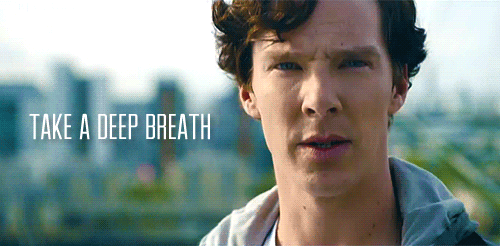

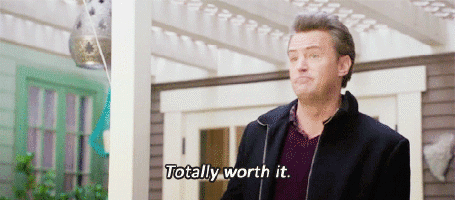
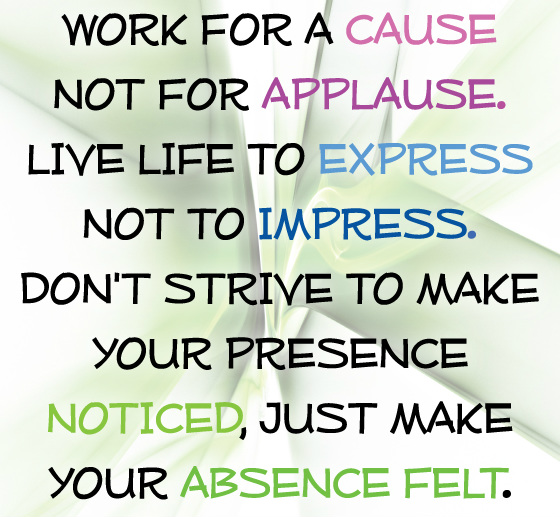
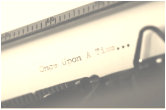
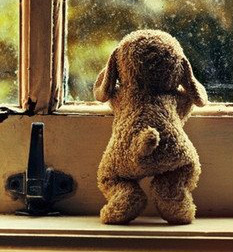
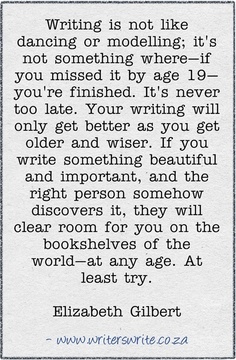
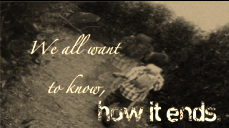

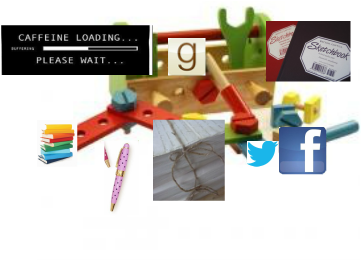

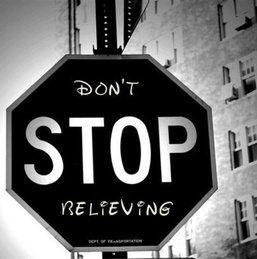
 RSS Feed
RSS Feed
